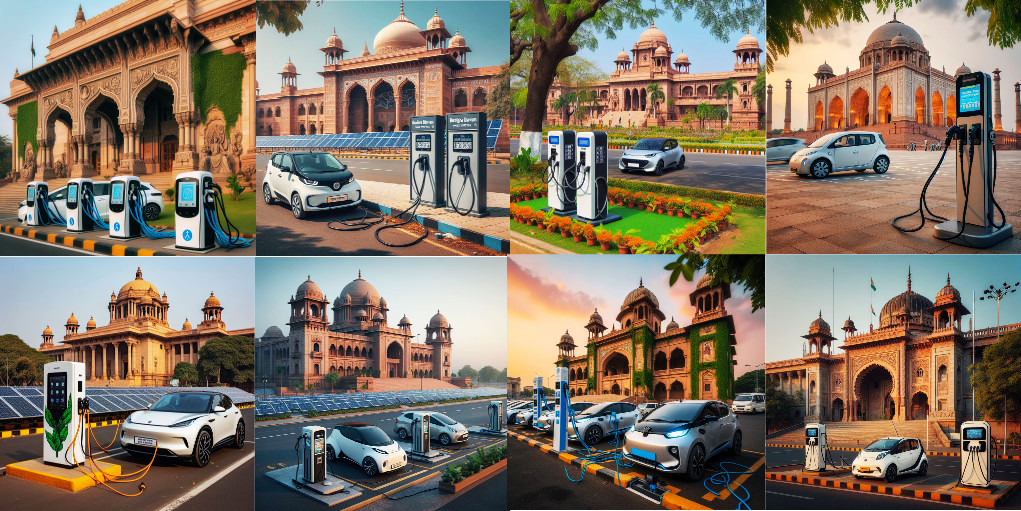
EV Charging Solutions for Cities & Municipalities:
Electric vehicles (EVs) are becoming more popular in India due to their environmental and economic benefits. However, one of the main challenges for EV owners is finding a convenient and reliable place to charge their vehicles. This is especially true for people who live, work, or visit smart cities, municipalities and government buildings, where they may need to access various public services, facilities, or amenities. Installing electric vehicle chargers for smart cities, municipalities and government buildings can not only help the EV owners, but also the public authorities themselves, as well as the society at large. Here are some of the advantages of installing electric vehicle chargers for smart cities, municipalities and government buildings.
Promoting sustainability and green initiatives:
One of the key advantages of installing EV charging stations in smart cities, municipalities and government buildings is the promotion of sustainability and green initiatives. As public authorities have a responsibility to lead by example, providing the infrastructure necessary for EV owners to charge their vehicles conveniently shows their commitment to environmental stewardship and social responsibility. By encouraging the use of EVs, public authorities can reduce their carbon footprint and air pollution caused by conventional vehicles. This initiative aligns with broader sustainability goals set by the government of India, which aims to achieve 30% EV penetration by 2030.
Enhancing convenience and accessibility:
Having EV charging stations readily available in smart cities, municipalities and government buildings provides EV owners with a hassle-free charging experience. They no longer need to worry about finding a charging station off-site or taking detours to refuel their vehicles. By strategically placing charging stations throughout the public premises, they can conveniently charge their EVs while accessing various public services, facilities, or amenities. This added convenience relieves range anxiety and encourages more people to make the switch to electric vehicles.
Saving costs and generating revenue:
While the initial investment in electric vehicle charging infrastructure might seem significant, public authorities stand to gain long-term financial benefits. They can save costs on transportation expenses by using EVs for their own fleet operations, as EVs have lower operating and maintenance costs than conventional vehicles. They can also generate revenue by offering charging services to EV owners, visitors, and the general public. These funds can be reinvested into improving public services, facilities, or amenities.
Creating learning opportunities and awareness:
Electric vehicle chargers in smart cities, municipalities and government buildings not only provide a practical benefit but also present valuable learning opportunities and awareness. Public authorities can integrate these installations into their educational programs, workshops, or campaigns focused on EV technology, renewable energy, and sustainable transportation. This approach empowers the public with the knowledge and skills required for future careers in the rapidly expanding green technology sector. By immersing them in this emerging field, public authorities prepare them for the sustainable workforce of tomorrow.
Attracting and retaining sustainability-minded people:
Installing electric vehicle chargers can also help public authorities attract and retain sustainability-minded people. As more people become aware of the environmental and economic benefits of electric vehicles, they may prefer to join or stay with public authorities that support their values and choices. By offering electric vehicle chargers in smart cities, municipalities and government buildings, public authorities can show that they are modern, progressive, and environmentally conscious.
